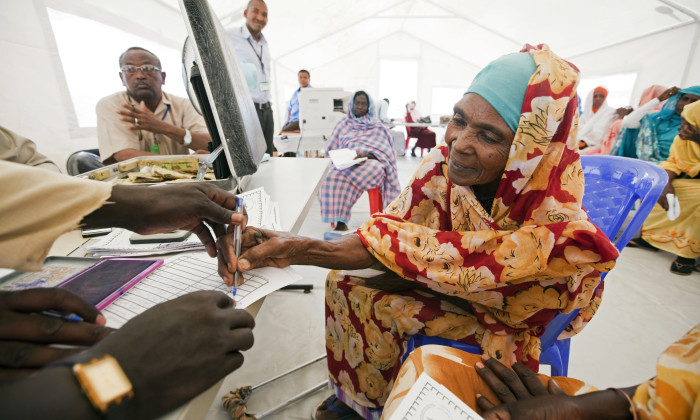Elections
Electoral assistance provided by international organizations can include a variety of tasks, from observation and technical assistance to the organization and supervision of elections.
Election observation is primarily undertaken by the EU and the OSCE, though not in the context of their peace operations but through special observer missions. The OSCE monitors elections within its 57 Participating States, while the EU monitors elections outside of this area. The goal of these missions is to make a fact-based assessment of the electoral process and help avoid election fraud. They do not, however, intervene in electoral procedures, nor do they confirm election results.
Since 2000, the EU has conducted over 200 observation missions in more than 75 countries on all continents (except in the OSCE region). In 2022, observation missions included elections in Colombia, Timor-Leste, Kenya, Lesotho and Lebanon. Within the OSCE, the Office for Democratic Institutions and Human Rights (ODIHR) has its own section that covers electoral capacities and expertise. In 2022, the OSCE conducted election observation in 13 countries, including Serbia, France, USA or Kazakhstan. The Organization of American States (OAS) and non-governmental organizations such as the Carter Center are important actors in this field.
Election observation is primarily undertaken by the EU and the OSCE, electoral assistance is an important activity in many UN peace operations. Examples:
- EU observation of the 2022 elections in Colombia
- OSCE observation of local elections in the Republic of Northern Macedonia and Georgia 2021
- MINUSCA support to the 2019/2020 parliamentary and presidential elections in the Central African Republic
 © Albert Gonzales Farran
© Albert Gonzales Farran
Electoral assistance is an important activity in many UN peace operations. Possible tasks include (1) support for electoral administration and planning, reviewing electoral laws and regulations, boundary delimitation, voter registration, election budgeting, logistics, procurement of election materials, use of technologies, training of election officials, voter and civic education, as well as (2) maintaining security during the electoral process. Over the past few years, the UN has provided such assistance through its missions in the Central African Republic (MINUSCA), the Democratic Republic of the Congo (MONUSCO) and Iraq (UNAMI), among other countries.
Some OSCE presences, for example in Kosovo, Montenegro or Kyrgyzstan, also undertake electoral assistance activities. In this context, they advise election commissions, support the reform of electoral codes or the establishment of voter lists and provide technical reviews of elections. They also run awareness-raising campaigns on voter rights and electoral procedures, and support NGOs observing local and national polls.
In the past, the organization of elections has been a task of UN missions with executive authority, such as the mission in Timor-Leste (UNTAET, 1999-2002) and Kosovo (UNMIK, 1999-today). Both missions planned and implemented several electoral processes during their mandated period.
As of 17.08.2023